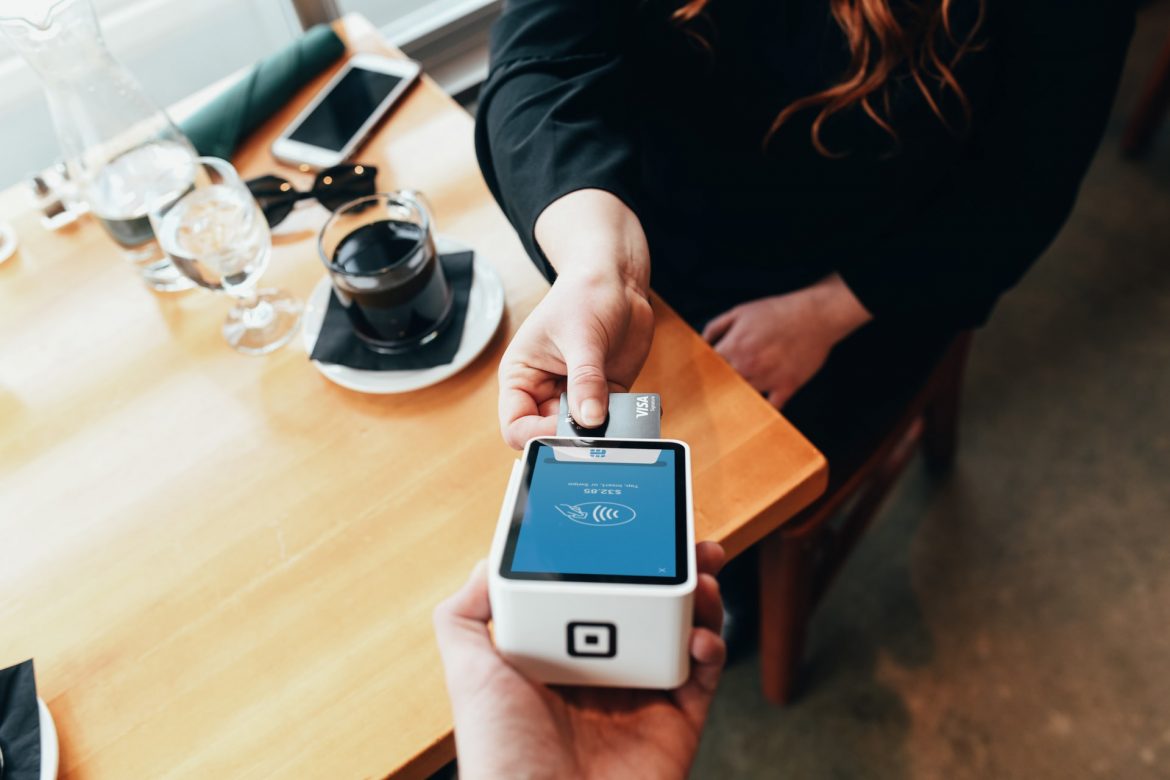Depending on the type of business you are running or planning to start, it is important to make it as easy as possible to receive payment in a face to face scenario. You have two main options today, which are cash or credit card. In the future, we will see other money transfer options driven by smartphones, but today we will focus on credit cards. You will need an EFTPOS solution (Electronic Funds Transfer at Point Of Sale) to facilitate this. This guide looks at what is involved in offering EFTPOS in your business.
An EFTPOS terminal or machine is an electronic device that assists in transferring funds from a customer’s bank account to your business bank account. To pay at an EFTPOS terminal, your customers must have an EFTPOS card, Debit Card, or Credit Card. You can also load the identity of your credit card onto your mobile phone and use that as a tap solution with an EFTPOS terminal. The EFTPOS solution does need the internet to function. The transaction settlement into your account normally occurs the same day or overnight.
WHY is EFTPOS easier?
EFTPOS is a convenient form of paying for the consumer as they do not need to carry cash. Indeed modern solutions don’t even need a card to be carried with payment able to be done from a watch, phone, or even a ring.
The merchant (you) reduces your need to have cash, less change, fewer security concerns, fewer visits to the bank, less counting, etc. Instead, money is quickly transferred, and the time taken to tap & go a card is significantly quicker than other methods allowing you to move on to your next customer faster.
One might also argue that using EFTPOS makes a customer less concerned about cost as a tap is more vanilla than counting out notes.
WHAT EFTPOS fees are there?
EFTPOS Solutions are available from different providers, including banks and independent software developers. Some providers offer a flat fee, with other fees applied to each payment option, so it is worth shopping around. Any of the following fees may apply:
- Price per month. A set fee that will be charged per month up to a certain dollar value of card transactions, after which you will be charged a fee as a percentage of every purchase over that dollar value.
- Credit card authorisation fees. These are fees charged when an inquiry is made to ensure funds are available on a card before a transaction is processed.
- Credit card service merchant fee. This fee may be charged by the bank when you process a credit card and is generally expressed as a percentage. Some cards have higher fees than others, like American Express. It is your decision about which cards you will accept. Some retailers choose to pass this fee onto their customers, but there is government restriction as to how much you can pass on. https://www.accc.gov.au/consumers/prices-surcharges-receipts/credit-debit-prepaid-card-surcharges.
- Payment terminal and account fees. You may be charged fees for administering your account, installing your payment terminal, or establishing your account. Establishment fees, cancellation fees, and equipment fees may also apply.
- Chargeback fees. If the cardholder disputes a credit card transaction, you will be charged a fee.
- Terminal access fee. This is a rental fee for providing and maintaining your EFTPOS terminal.
- Debit card fees. You may be charged fees for processing debit purchase transactions or for a customer getting cash out at an EFTPOS terminal.
- Sign up offers. Rental fees or others may be waived for the first x months of operation.
HOW do I pick which EFTPOS terminal is right for me?
EFTPOS terminals can come with several different features to consider when deciding which provider to choose:
- Portable payment terminals. Not all terminals need to be plugged into a power point, and a portable unit has a battery and uses the mobile phone data network to transact.
- Connect to a smartphone. This is a device that will connect to your smartphone physically or wirelessly. It allows the credit card to be tapped or inserted to complete the transaction via an app on your smartphone.
- Payment options. Refers to what payment methods can/will accept Visa, MasterCard, American Express, Union Pay, Diners Club, Apple pay, Google pay, JCB, or Alipay.
- Insights and analysis. Results and analysis of sales can be done via the terminal.
- Settlement time. This is how quickly you will see the money in your bank account.
- Email receipts. The option to email customer receipts rather than giving printed receipts to customers.
- Receipt printer. The option to physically print a receipt. It is normally done on heat-sensitive receipt rolls.
- Terminal location. The ability to store the GPS location (address) of where the transaction took place.
- Accounting package. The ability of the EFTPOS solution to be integrated into your accounting package. This simplifies backend accounting procedures.
- Customer Service. This can be telephone support through to a replacement of a terminal. Make sure you also check the operating hours.
HINT
Beyond the major banks, we also recommend you compare a company called Square which sells a solution you can pick up at Officeworks and have running in minutes via your mobile.
It is also possible to make EFTPOS payments via most accounting packages without needing additional hardware. Note this will require all card details to be entered manually.
SUMMARY – Show me the money!
EFTPOS does not require you to go to the bank or keep cash secure, and the money will be available the next day. Tap and Go facilities and mobile solutions mean you can collect payment quickly anywhere you can get mobile or internet coverage.

8 comments
[…] […]
[…] […]
[…] […]
[…] […]
[…] […]
[…] […]
[…] […]
[…] […]